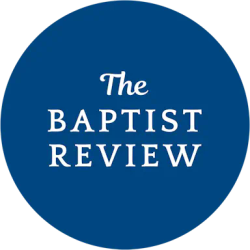This year marks another presidential election cycle in the United States. The likely major party candidates are the same men who ran against each other four years ago. The Democratic candidate is the incumbent, and the Republican candidate served the previous term. Polls indicate many Americans are frustrated to have a rematch of the 2020 election, yet both candidates handily defeated their challengers in the primaries. November will be here before we know it.
Election years can be tricky for pastors. Some lead churches where there is a good deal of political homogeneity. In those contexts, pastors can feel pressured to be more vocal than they would like concerning elections, candidates, or related topics. Others lead churches that are either politically mixed or that have a history of being apolitical. In those contexts, pastors can feel pressured to not address any political issues.
In this short essay, I want to offer five principles for pastors who seek to navigate the choppy waters of an election year. I offer these principles with public preaching and teaching scenarios in mind rather than private conversations, though they can also be applied to the latter.
Principle 1: Don’t Try to Avoid the Election
Everyone in your church knows the election is taking place. It will likely be the most important thing that happens in the United States in the next seven months. Your church members are being inundated with television advertisements, news segments, mailers, election content in their social media feeds, and conversations with folks they know about the election. All of these voices are discipling them to think in certain ways about the presidential contest (and other races and issues).
If you pretend like the election isn’t happening you will not only appear out of touch with reality, but you’ll also miss opportunities to help your members to think biblically about politics. You need to engage this topic in some way, as a matter of faithful pastoral leadership. The only question is how.
Principle 2: Don’t Overemphasize the Election
There is a tendency in our culture to treat politics as a hobby, especially during an election year. At best, this can lead to a disordered focus on political races. At worst, it can lead to idolizing elections by treating them as more important than they are. Who among us hasn’t heard, every four years, that this election is the most important in our lifetime? Andrew Walker reminds us in a recent editorial that man’s chief end is not political obsession. He argues that “If Jesus truly is King (and we most certainly believe He is), earthly politics is at best secondary to our lives in this age. What should be more important is your family, your local church, and your relationships.”
Principle 3: Focus on Issues More than Candidates
Chances are, some of your church members are very highly partisan. It might be difficult for them to understand how a “real” Christian could vote for the other candidate. You might even struggle with this yourself. Remember that elections are about issues more than the candidates themselves. Candidates come and go, and none of them are perfect. What matters most are the issues they will (hopefully) champion if elected.
For these reasons, it is always wise to speak directly to issues while generally avoiding endorsing (or quasi-endorsing) particular candidates. Your preferred candidate might let you down by breaking promises, changing his mind, making unethical decisions on other matters, or otherwise demonstrating a lack of character. But the issues themselves will still matter.
Principle 4: Make a Distinction between Straight-Line and Jagged-Line Issues
In 2020, Jonathan Leeman and Andy Naselli published a helpful essay for pastors on how to shepherd believers with differing political views. They also wrote a short booklet on the same topic that is intended for church members. In both publications, they make a helpful distinction between “straight-line” and “jagged-line” issues. Straight-line issues are matters where it is possible to directly apply the text of Scripture to a specific policy matter. For example, Scripture does not permit believers to support abortion-on-demand (which is murder) or affirm homosexual marriages (which are not marriages in the biblical sense).
Jagged-line issues require a multistep process from the biblical text to a policy position. For example, while Scripture speaks clearly about paying taxes, treating immigrants with dignity, and the sin of partiality, the biblical text doesn’t require specific policy positions on tax rates, immigration reform, or racial justice. You should help church members understand the importance of agreeing on policies that address straight-line issues while respecting one another’s consciences concerning the wisest approach(es) to jagged-line issues.
Principle 5: Read and Recommend Helpful Resources
First and foremost, do not rely too much on social media to shape your own understanding of the election. Social media is one of the most aggressively partisan spaces in our culture. Furthermore, there are voices on social media—often well-compensated—who have a vested interest in persuading believers that elections are ultimate matters and that partisan loyalty is a matter of faithful discipleship. Ignore these grifters, even when you are sympathetic to some of their views. The same thing could be said for opinion programs on cable news networks. Instead, read thoughtful Christian writers who love the church and want to help believers to be faithful disciples in political matters.
A great place to start is Andrew Walker’s “The Nations Belong to God: A Christian Guide for Political Engagement,” which is available online through the Ethics and Religious Liberty Commission. I would also recommend Walker’s book Liberty for All: Defending Everyone's Religious Freedom in a Pluralistic Age, Jonathan Leeman’s How the Nations Rage: Rethinking Faith and Politics in a Divided Age, and Patrick Schreiner’s Political Gospel: Public Witness in a Politically Crazy World. For a deeper dive into our tradition, see the recent collection of essays Baptist Political Theology, edited by Walker, Paul Miller, and Thomas Kidd.
Editor's Note: As a part of its commitment to fostering conversation within the Southern Baptist Convention, the Baptist Review may publish editorials that espouse viewpoints that are not necessarily shared by the TBR team or other contributors. We welcome submissions for responses and rebuttals to any editorials as we seek to host meaningful conversations about the present and future of our convention.


